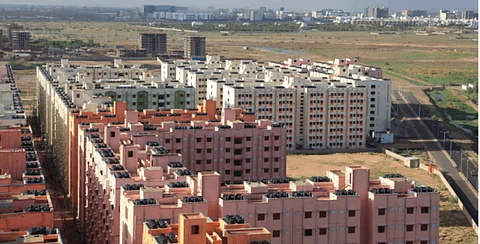

A recent social media post from Chennai has reignited debate over housing discrimination in India’s cities. Local resident Prashanth Rangaswamy shared a screenshot on X (formerly Twitter) showing a message from a potential landlord that read, “Sorry sir. Looking at veg families only.” He cheekily captioned it, “Eating non-veg is injurious to finding flats for rent in Chennai.” The post went viral, triggering widespread discussion and shedding light on the often-overlooked biases in India’s rental housing market.
Many users voiced frustration, pointing out that landlords frequently reject tenants based not just on diet, but also caste, religion, and language. One user remarked, “Some people also reject tenants based on caste or religion. If you’re Muslim, they just say: sorry, we don’t rent to Muslims.” The comment reflects a broader and persistent issue of exclusion in Indian urban spaces, where marginalised groups regularly face hurdles in securing accommodation.
While some defended the landlord’s stance—arguing that homeowners have the right to choose who lives in their property—others urged a more thoughtful approach. “His house, his rules. Buy your own and rent it to whoever you want,” one user wrote. Others acknowledged that strong food preferences, such as vegetarians avoiding the smell of meat, might be understandable—but warned against equating dietary exclusions with deeper, systemic discrimination.
The episode once again brings into focus the complicated balance between personal preference, property rights, and social equity. As cities continue to grow, so too does the challenge: how to ensure that individual freedoms do not come at the cost of a more inclusive and fair housing environment.